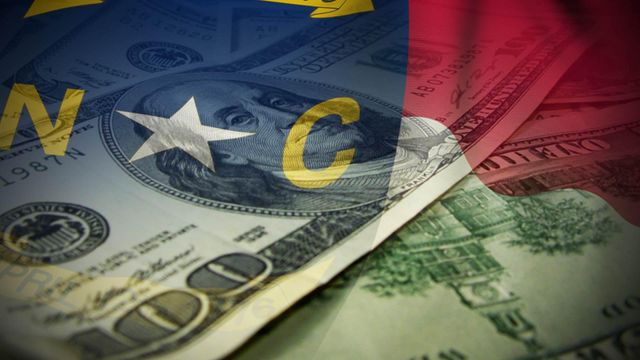Land Tax Option, Medicaid Relief in Budget Plan
House and Senate budget negotiators spent Thursday hammering out the fine points of a tentative agreement on a $20 billion state budget in preparation for lawmakers to take a first vote Friday on the two-year spending plan.
Posted — UpdatedThe agreement reached late Wednesday would permanently raise the state sales tax by a quarter of a penny, would shift Medicaid costs from counties to the state and would give counties the option to seek voter approval for either another 0.25 percent sales tax increase or a real estate transfer tax.
Public school teachers would receive a 5 percent raise under the budget plan, while other state employees would see their pay go up by 4 percent.
The transfer tax, which would be limited to 0.6 percent of the sale price, has been a major sticking point for lawmakers, especially Senate Democrats. Real estate groups have waged a fierce advertising and lobbying campaign to block it.
"All of our polling indicates that more than three-quarters of the North Carolina public are opposed to a land-transfer tax, and when they have a chance to vote on it, if they do, I think that those numbers will hold firm," said Tim Kent, executive vice president of the North Carolina Association of Realtors.
"The Senate budget did not increase tax rates at all, and the Senate leaders proclaimed that they would never give in to the House on that – but they did," said state Rep. Paul Stam, R-Wake.
The sales tax increase that was adopted during the 2001 budget crises was supposed to expire two years later. It was extended until this summer, however, to ease the state through an up-and-down economy. The budget agreement would make the tax permanent, setting the state sales tax rate at 6.75 percent.
An increase in the top state income tax bracket that was adopted at the same time as the "temporary" sales tax will be allowed to expire under the budget agreement. The state's highest wage-earners will once again pay a 7.75 percent tax on their income instead of 8 percent.
In addition to reducing the uppermost tax rate, the state would create its own version of the federal Earned Income Tax Credit for low-income workers
The fiscal year began July 1, and the state has been operating under a temporary budget that is set to expire Tuesday.
Gov. Mike Easley last week expressed frustration at the slow pace of the budget negotiations and ordered that the state release $114 million to North Carolina school districts to help them hire teachers and finalize plans for the new school year.
Easley said he wanted Medicaid relief rolled into the budget before he would sign it, and lawmakers complied with that demand.
Under the budget agreement, the state would take over the counties' share of Medicaid expenses, which are expected to be $520 million this year, in exchange for taking some tax revenues that local governments have kept over the years.
The Medicaid phase-out will help rural counties with a high percentage of residents participating in the government health-insurance program.
A coalition of local governments and businesses pushed the transfer tax option as a way to help urban counties that are seeing large population growth and that wouldn't benefit much from a Medicaid swap.
"The counties are in dire need for some income, particularly the faster-growing counties. The counties that are not growing have Medicaid problems and tremendous Medicaid costs," said Rep. Jim Crawford, D-Granville, one of the House budget negotiators. "What we're trying to do is give the counties an option so they can cover their costs."
The budget plan also would cap the state gasoline tax, which is among the highest in the country. It was unclear Thursday what the cap would be, however.
Also, a dedicated research fund would be created for the Lineberger Comprehensive Cancer Center at the University of North Carolina at Chapel Hill. The fund, which would start at $25 million a year and increase over three years to $50 million annually, would be financed by tobacco settlement money and a higher tax on smokeless tobacco.
• Credits
Copyright 2024 by Capitol Broadcasting Company. All rights reserved. This material may not be published, broadcast, rewritten or redistributed.






